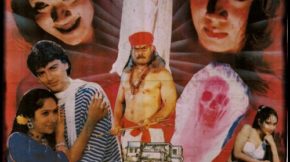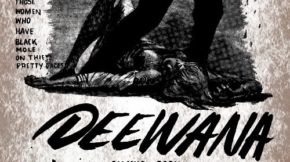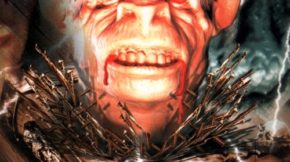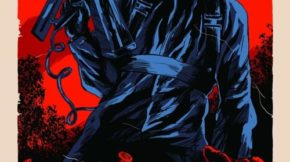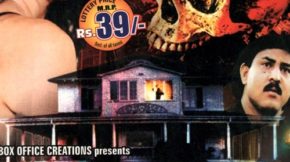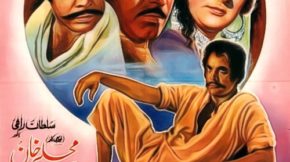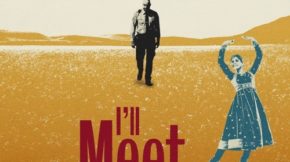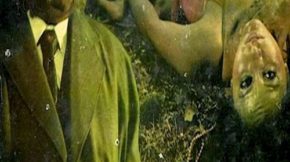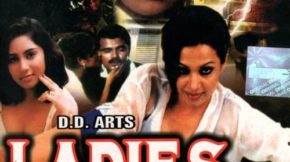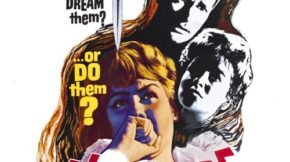Manoj Kumar, buoyed by the whopping success of Upkar in 1967, assembled an excellent cast for his follow up in which he was to repeat his role of the young, idealistic Bharat – a true son of pure Indian soil.
The tangled web of a story begins in pre-Independence India with the freedom movement in full swing and the British colonials on the retreat. Ashok Kumar is the upright Hindu village priest whose family is avidly involved in the freedom struggle.
Pran is his son who yearns for a better life away from the filth and overcrowded Indian streets and doesn’t have much time for independence. Dastardly, Pran grasses on his uncle, who happens to be one of the liberation movement’s heroes, turning him into the Brits who gun him down ruthlessly in front of the family. After this shocker and seeing that the independence movement is about to achieve its ends, Pran decides to dash before the lynch mobs arrive, baying for his blood for being a vile traitor and turncoat that he is. He leaves behind a pregnant Nirupa Roy, stoic in her refusal to leave her land for a shallow existence abroad but grabs his young son and takes the first flight bound for London. There, his son grows up as Prem Chopra – a debauched hippy of the worst persuasion. However, Pran makes it big as a business tycoon on the strength of his canny ability at the dog races.
Meanwhile, at home in India, Nirupa Roy gives birth to a daughter. At the same time, various other family members in the close-knit community also have children, one of whom is young Bharat, born to Kamini Kaushal, the widow of the recently martyred independence leader. The pre-independence scenes are in black and white for symbolic effect, and it is when August 15th arrives and the Indian Tricolor replaces the British flag that the screen blooms into complete Technicolor.
Years pass, and young Bharat, under the tutelage of the kindly sage Sadhu Ashok Kumar, grows up into a fine young Nationalist, bursting with patriotic fervour and pride – walking around with an all-knowing, smug expression that suggests an inflated sense of self-importance and esteem. To top that, he is the most irritating Know-all that one could ever come across, and he sings in the pretty unfortunate voice of Mahendra Kumar!
One day, young Bharat is invited over to England, where he is supposed to study science. He is to stay with another Uncle who has settled abroad with his two children whom he has had from his English wife. Though Shammi hardly passes as a British socialite, however hard she sucks on her plush cigarette holder and adjusts her blonde wig.
Anyway, Manoj duly arrives and is disappointed by everything he discovers about western society and culture. He finds it astounding that people who could make such strides as to send rockets to the moon could also be wallowing in the godless filth that he views all around him.
Even more shocking to him are the antics of the young people of Indian origin and parentage who do not know their history or Indian culture. They appear to be lost in a haze of mind-altering drugs and alcohol and stuck in a destructive cycle of hedonism, decadence and debauchery. Bharat’s nationalistic ideas take aback Uncle Madan Puri but slowly warms to the lad’s diatribes. He eventually starts missing home so much that he pulls out his old Saigal records, dusts them down and listens all day long, much to the chagrin of his very Indian looking English wife.
Madan Puri’s blonde bombshell of a daughter Preeti is played by Saira Banu, wearing the minutest mini-skirts and sporting long blonde tresses. Manoj waited for over a year to shoot his film as Saira Banu had been suffering from colitis, and he felt she was perfect as Preeti and refused to consider another performer for the role. As it happens, he did indeed suit the role to a T and turned in one of her memorable performances from a very patchy overall career. This film was undoubtedly one of the highlights of her career. Preeti is very pleasant but wayward, chain-smoking, drinking her life away, and hanging around with dubious hippies. Likewise, her brother is a total loser and a moronic hippy who keeps changing his names every few days for reasons best known to himself.
However, Bharat slowly starts to affect everyone’s lives with his sermonizing and one by one, the wayward Indians are shown the righteous path that leads straight back to the land of all goodness and sanctity – the land of Bharat. However, significant complications have to be tackled along the way, especially Saira Banu, who refuses to give up her mini’s and fags and Pran, who still has a lynch mob waiting to pounce on him the moment he returns.
There are numerous achingly brilliant scenes along the way. First of all, Manoj Kumar’s profound use of symbolism never fails to entertain – from the changing from Black and White to colour upon reaching freedom to a bursting champagne bottle to symbolize ejaculation! – Subtle as the proverbial sledgehammer. Then there are countless scenes when Bharat stuns his audience with his patriotic songs and his admittedly fairly tuneful Bhajans. Time and again, he bursts into Raghupati Raghav Raja Ram in public, and once it proves so popular, the local German crowd gathers around and joins in, no doubt all wanting to throw away their crosses and become Hindu on the spot.
In a particularly hysterical scene, one of the hippies “saved” by “Bharat the saviour” is shot. In his death throes, he begs Bharat (in French) to perform his death rites by singing Raghupati Raghav, in effect turning to Hinduism as he enters the spiritual world of the departed. Sublime stuff indeed from the master patriot Manoj Kumar!
Then, in one particularly memorable scene, Pran lays into India for being backwards while lauding the west for being so enormously advanced. Bharat reminds him and the rest of the audience that it was the Hindu Aryans who invented the “zero”. All subsequent human development can indeed be credited to discovering the “zero” – all this done in song form, of course! Without this discovery, nothing would have been possible.
Kalyanji Anandji provides a sizzling background score with some excellent “Freak Out” dance music cuts and some tuneful traditional songs sadly ruined by the fact that Mahendra Kumar sings them all. The bhajan mentioned above was a smash hit for Kalyanji Anandji, but their funky dance jams are the beauties. There is a mind-blowing jive session on a boat in London when Preeti takes Bharat to meet her Hippy friends, including his cousin Mohan, who has become Mann, and Omkar Prasad, who is now OP. On the boat, Preeti and her friends jive it up to the latest dance sensation, “Who’s got the time to think”, and it sounds suspiciously like Asha Bhosle singing up a storm as one of the hippies – nonetheless, it’s a brilliant dance track and an equally stunning scene. (It turns out it is also on the Snow Flake Soundtrack and perhaps not a Kalyanji Anandji composition at all!).
Perhaps the finest among a succession of epic soul-stirring scenes is the song that arrives as the film’s climax. The nursery rhyme Twinkle Twinkle Little Star given the desi, Punjabi style treatment, which must have gone down a storm with the front-benchers in its day. During this fabulously twisted rendition of Twinkle Twinkle cum Jack and Jill went up the Hill, Saira Banu’s resistance finally snaps, and moments later, she finally emerges as a new desi-fied version.
The film pretty much qualifies as a classic as it is arguably the blueprint genre setter that has inspired countless other films with similar nationalistic themes that highlight the culture-clash and value-clash between East and West.
Manoj Kumar came up trumps as the film became a major success and his Bharat turned into a lucrative franchise even though the character of Bharat was never a continuation from one film to the next but a different Bharat for each other movie. Still, the common denominator was Manoj Kumar and his VIP production banner and the nationalistic themes. It’s almost as though Manoj Kumar became the “Bharat” character, and there was nearly an unwritten copyright that nobody else could play “Bharat”. I don’t believe anyone other than Manoj Kumar ever tried.
Bharat featured in several more films though he probably reached his commercial peak with 1974’s mega-hit Roti, Kapda aur Makaan. After that success, it was all downhill for Manoj’s Bharat and sadly, “Son of Manoj” Kunal Goswami failed dismally to keep the flag flying. The Bharat films of Manoj Kumar will one day be of considerable interest to historians and scholars attempting to discover more about Indian popular culture when the nation was carving out its post-colonial identity. Movies, after all, directly reflect the issues that prevailed during the era they and Purab aur Paschim has plenty to be fascinated by.
The film also features a youthful Vinod Khanna in a bit role – he who went on to become a major star before fleeing the industry to take up residency in the notorious Rajneesh’s infamous ashram for the rich and confused only to return to the industry when the Rajneesh thing fell apart.



